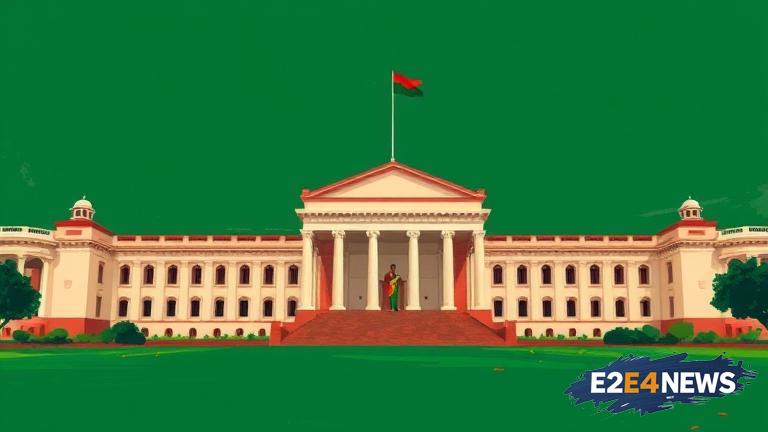The Bangladesh Supreme Court has announced that it will hear review petitions on the reinstatement of the caretaker government system, which was abolished in 2011. The caretaker government system was introduced in 1996 to ensure free and fair elections in the country. However, it was abolished by the Awami League government in 2011, citing that it was no longer necessary. The decision to abolish the caretaker government system was met with widespread criticism from opposition parties and civil society groups, who argued that it would lead to a decline in the quality of elections. The review petitions were filed by several opposition parties, including the Bangladesh Nationalist Party (BNP) and the Jatiya Party, who are seeking to reinstate the caretaker government system. The petitions argue that the abolition of the caretaker government system was unconstitutional and that it has led to a decline in the quality of elections. The Supreme Court has agreed to hear the review petitions and has set a date for the hearing. The hearing is expected to be a significant development in the country’s political landscape, as it could potentially lead to the reinstatement of the caretaker government system. The caretaker government system was designed to ensure that elections are free and fair, and that the government does not interfere with the electoral process. The system was introduced in 1996, after a long period of political instability and unrest in the country. The caretaker government was responsible for overseeing the electoral process and ensuring that elections are conducted in a fair and transparent manner. The abolition of the caretaker government system in 2011 was seen as a major setback for democracy in Bangladesh. The opposition parties have argued that the abolition of the caretaker government system has led to a decline in the quality of elections, and that the government has used its power to manipulate the electoral process. The review petitions have been filed by several opposition parties, who are seeking to reinstate the caretaker government system. The petitions argue that the abolition of the caretaker government system was unconstitutional and that it has led to a decline in the quality of elections. The Supreme Court’s decision to hear the review petitions is seen as a significant development in the country’s political landscape. The hearing is expected to be a major test for the government, as it could potentially lead to the reinstatement of the caretaker government system. The opposition parties have welcomed the Supreme Court’s decision to hear the review petitions, and have expressed hope that the court will rule in their favor. The government has argued that the caretaker government system is no longer necessary, and that the electoral process can be conducted fairly without it. However, the opposition parties have argued that the government’s argument is not convincing, and that the caretaker government system is essential for ensuring free and fair elections. The hearing on the review petitions is expected to be a major event in the country’s political landscape, and could potentially have significant implications for the future of democracy in Bangladesh. The Supreme Court’s decision will be closely watched by politicians, civil society groups, and the general public, who are all eager to see the outcome of the hearing. The caretaker government system has been a major issue in Bangladeshi politics for many years, and the Supreme Court’s decision could potentially resolve the issue once and for all. The opposition parties have argued that the reinstatement of the caretaker government system is essential for ensuring free and fair elections, and that it is necessary for the health of democracy in Bangladesh. The government has argued that the caretaker government system is no longer necessary, but the opposition parties have argued that this is not the case. The Supreme Court’s decision will be a major test for the government, and could potentially lead to significant changes in the country’s political landscape.
